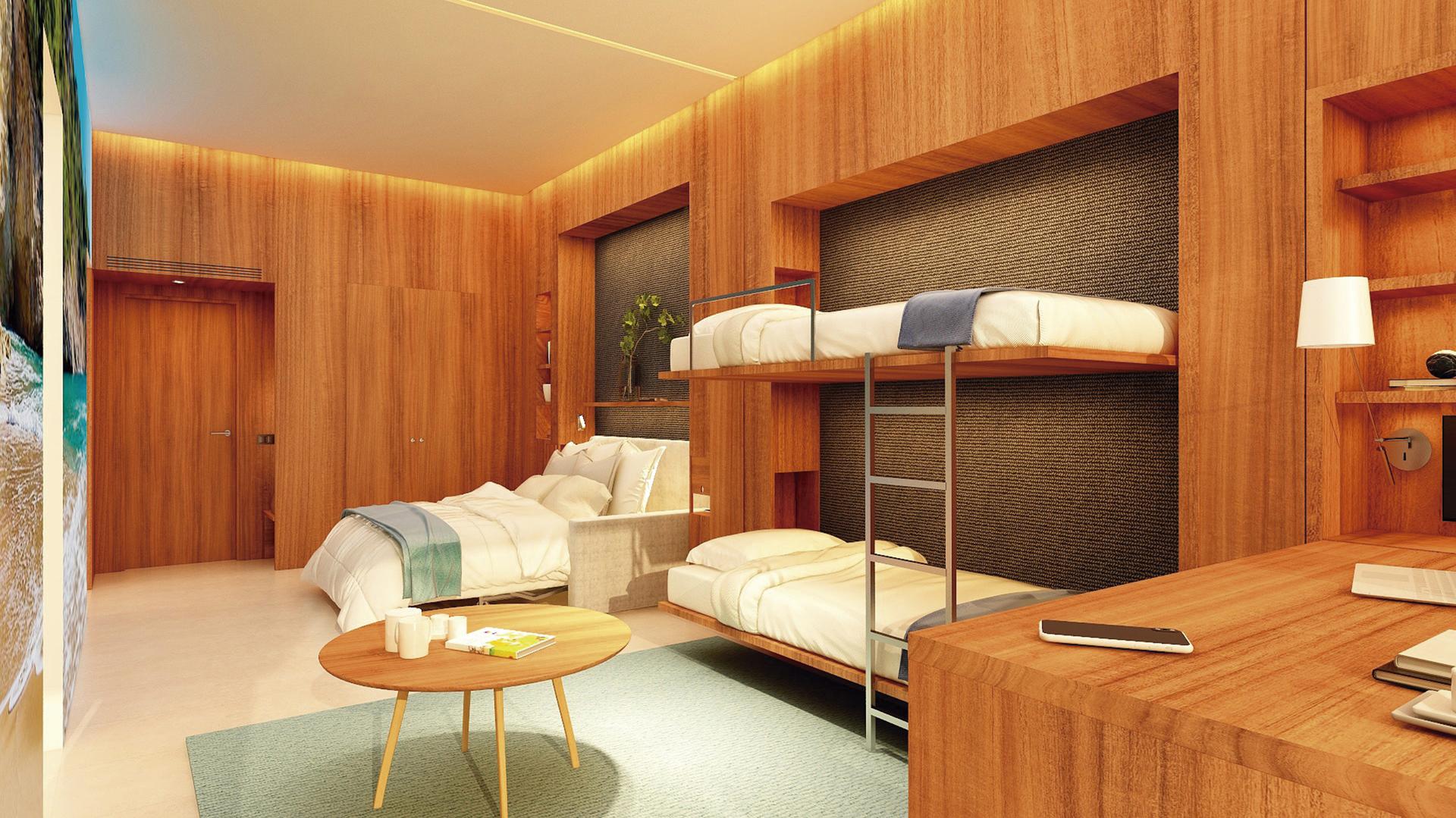
Author

In 1994, Patrick Genard founded his own architecture, urban planning and interior design agency, Patrick Genard and associates Slp in Barcelona, with associate offices in Paris and Brussels.
From their office in the Poblenou neighborhood of Barcelona and boasting an international, multidisciplinary team, Patrick Genard & Associates prepares and carries out projects in a number of countries.
Their work includes the Belgian Pavilion at the 2015 Universal Exposition in Milan, the two headquarters of the Mediapro Group in Barcelona, and the Sofitel and Barceló hotels in Casablanca.
The challenge
The Concept Room is inspired mainly by the hotels belonging to the chain in Lloret de Mar, on Catalonia’s Costa Brava. The environment is touristic, having recently been immersed in a tourist reconversion that favors a family model oriented more towards the needs of families. A model that is sustainable and connected with the natural resources of this tourist destination.
Local connection. Reflect the connection between the interior space and the hotel’s environment and natural surroundings. For example, the incorporation of elements that directly or indirectly bring to mind the distinctive features of the Costa Brava.
Celebrate the everyday. Highlight the “slow” component that is a part of the lifestyle of this customer profile; for example, in everything related to organic food. The aim is to promote a very natural and fresh aspect.
Differentiated and multifunctional spaces. Flexible configuration of the space according to the needs of the traveler profile. Finding alternatives, for example, that allow luggage and other accessories to be easily stored out of sight.
Social by design. Thinking about specific aspects in the room that highlight the social purpose behind the hotel chain (as exemplified especially by the activities of its Foundation, the Climent Guitart Foundation).
Eco, easy to maintain. Reduce the environmental impact, both in the materials used and in other elements present in the room, such as amenities (for example, through the use of eco-products).
Substitution of common elements in the room. For example, replacing the mini-bar with a refrigerator, or using a microwave instead of a thermos.
Comfort for all. This universal accessibility of space must be incorporated in a very subtle way, away from any healthcare concept.
Target
Traveling, an activity to strengthen family ties.
The Slow Family Traveler travels in order to share quality family time. Mothers and fathers who belong to this particular profile practice a more conscious kind of parenting, in which the family is at the center. They seek to learn more about spaces and, whenever they can, they encourage a connection with nature on their trips. These families follow the “slow” philosophy: they seek to make the everyday and essential extraordinary. They do not aspire to the role of professional educator when traveling with their children, rather they allow themselves to be guided by their children’s own natural processes. They make getaways close to home and value quality over speed. They appreciate clean, simple, but beautiful environments. Comfort is important for this profile, but so is design. Balance is the key.


